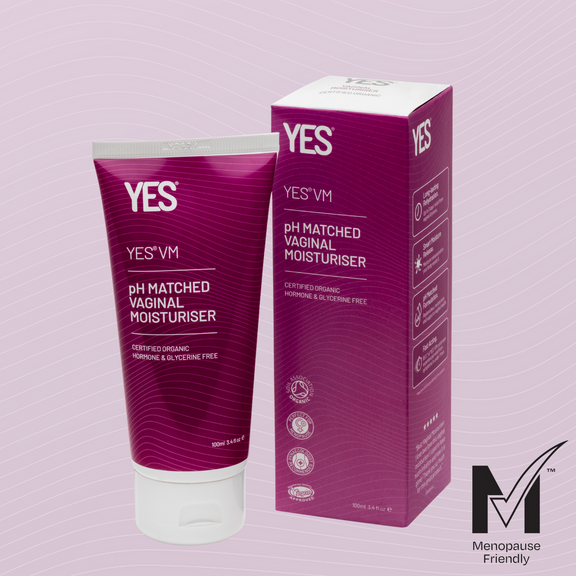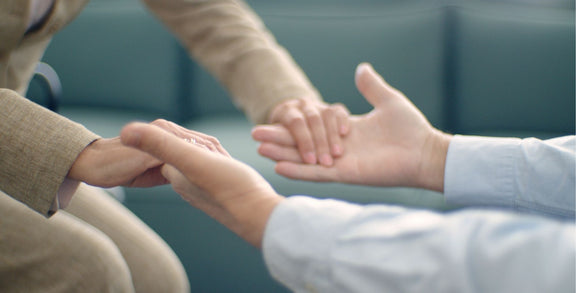Guest Blog: Sophie Claus discusses her surgical menopause journey
Surgical menopause hit me like a freight train in February 2018, age just 32. It was just two days after a total hysterectomy and bilateral oophorectomy for endometriosis and PMDD that menopausal symptoms began.

What is POI & surgical menopause?
POI stands for Premature Ovarian Insufficiency. It can occur for a number of reasons: genetics (as an inherited condition), as a result of an infection such as mumps or malaria, post-cancer treatment or sometimes the cause is unknown. POI typically describes when the ovaries shut down or stop working, but the term is also used to define when the menopause occurs below the age of 40, in your teens, 20’s and 30’s (1). The surgical removal of the ovaries (bilateral oophorectomy) is another form of POI. The ovaries are the main source of oestrogen production in the female body, so the sudden removal of this source of hormones can often lead to an onset of menopausal symptoms. This is known as surgical menopause or ‘surmeno’.
It’s a common misconception that menopause only occurs in your 50’s
Prior to surgical menopause my understanding of it was limited, so when it hit, I felt shocked and ill prepared. I’d been told I’d experience a hot flush or two…little did I know! Would you believe there are over 40 menopause symptoms?! Within days I was experiencing hot flushes (up to 20 a day) and night sweats. These were relentless and so incredibly exhausting; however it was the brain fog, fatigue, anxiety, bone ache and vaginal atrophy that impacted me the most. I had absolutely no idea that menopause could be so difficult and I remember thinking, what have I gotten myself into? I felt as though I was grieving for who I once was, I’d lost myself. As menopause is something that typically happens between the ages of 47 and 53, a lot of literature and marketing is aimed at women over 50. It’s incredibly frustrating and can increase feelings of isolation. I’ve often felt like screaming ‘what about us?!’
Managing menopausal symptoms
Throughout my journey I’ve been shocked at how many women, like me, are struggling with menopause symptoms and have found receiving the right care and support a huge challenge, it seems to be a postcode lottery. The first year after surgery was a daily struggle. All relationships began to suffer - at work, socially and at home. One of the hardest things was loss of intimacy. Due to vaginal atrophy not only did I experience discomfort throughout the day, I just couldn’t enjoy any sexual pleasure anymore, as it was so incredibly painful. I kept saying to my partner, ‘I’m broken, nothing works anymore’. We had tried several lubricants, one of which was rose scented… If vaginas were meant to smell of roses then we’d be born that way! Another product was a ‘warming’ lubricant… my goodness it burned, I was on FIRE! (This ruins the mood somewhat!). So suffice to say I felt resigned and thought that this was the end of all intimacy, another part of me that I’d lost. There is so much more to our relationship than sex, but it was something we really enjoyed before surgery so I felt robbed. Thankfully I attended one of Diane Danzebrink’s Menopause workshops where during a chat about vaginal atrophy, we were told about ‘YES’ and for me, it’s been an absolute game changer. YES lubricants have made intimacy enjoyable again. Best of all, they are natural certified organic personal lubricants, vaginal moisturisers and intimate washes, and they don’t contain concerning chemicals or known skin irritants (NO burn inducing ingredients – YAY!). I hugely recommend YES products, alongside many health professionals. Someone once said to me, look after your vagina like you would your face. They were 100% correct, I’ve seen a huge improvement and it’s helped me feel like me again.
One important lesson I’ve learned from this journey is it really is good to talk
Menopause can feel lonely, especially if you’re experiencing anxiety, so I began an Instagram blog and have met incredibly strong, inspirational women. After my search for a menopause support group in my area bought no results, I also set up ‘The Menopause Club’ - A club for women in natural or surgical menopause to get together and talk anything and everything menopause. We get together on the last Monday of each month; sometimes we have a cry but mostly we just share our feelings, hints and tips and have a good giggle along the way. For anyone facing early menopause I would recommend the following:
-
Nourish to flourish. Your body needs different nutrients, I’ve felt the benefit of adapting my diet.
-
Know your stuff, knowledge is power. In a world where Menopause, let alone Early or POI still isn’t understood, it’s good to be clued up. There are many great sources of information out there: The Menopause Support Network, the BMS, Surmeno Connection and the Daisy Network are all fab.
-
This has been a big struggle but it’s important to accept and learn to love your new body. I’m still working on it!
-
Talk about it, you are not alone in this.
-
If you aren’t happy with the care you are receiving, refer to the NICE guidelines, it’s your right to request a referral to a specialist menopause clinic.
-
Carry a fan in your handbag, I bought a rechargeable fan, if I have a hot flash it helps keep me cool and calm.
-
Invest in cooling undies and nightwear, they really do help.
-
Most of all, look after you. After all, you can’t pour from an empty cup.
Need a little extra advice? Check out Sophie Claus and Diane Danzebrink’s podcast ‘The Good, The Bad and The Downright Sweaty’ discussing their menopause journeys and top tips. <1> https://www.daisynetwork.org/about-poi/what-is-poi/




